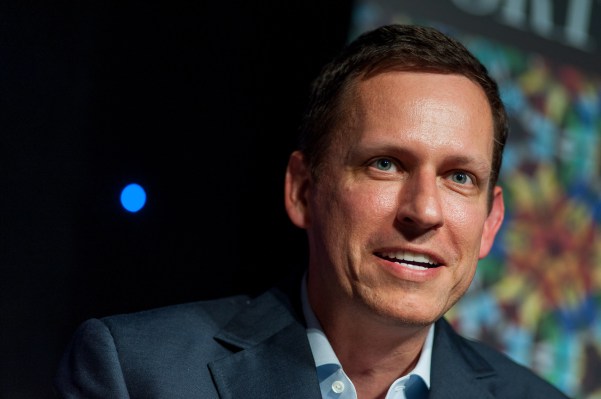Peter Thiel is supporting Donald Trump, and it’s time to for Silicon Valley to take sides. Is it for Peter Thiel or against him? Furthermore, should Y Combinator president Sam Altman resign if he can’t bring himself to fire Thiel as a part-time partner?
These were actual questions posed publicly yesterday, I’m sorry to note.
It’s clear that Trump is about as popular as the Zika virus in Silicon Valley (and, seemingly, a growing number of other places). But it’s worth asking: Why does everyone care so much what Peter Thiel thinks about politics? Is he also running for office? Did somebody appoint him Silicon Valley’s official representative in Washington? Along the same vein, why spend so much time worrying about what Sam Altman says and whether Y Combinator will continue to work with Thiel?
The common wisdom seems to be that Trump poses a threat to the country, and because Thiel sits on the boards of some very powerful companies, including Facebook, we should be concerned by his support of Trump. Meanwhile, Y Combinator is an influential force in Silicon Valley, and if it continues to employ Thiel as a part-time partner, it’s sending the wrong message to the many entrepreneurs whose minds it is helping to shape and who may themselves be in positions of power at some point.
Aren’t we all smarter than this? Do we really think founders are that impressionable? Thiel is renowned, yes, but there are many successful people with varied perspectives in Silicon Valley. Those worried about a Trump presidency should be delighted that Thiel is seemingly alone in sticking his neck out here. It could be a lot worse.
I don’t know Thiel. I’ve interviewed him maybe a handful of times, and nearly a decade ago, he accepted an invitation I extended to meet a gaggle of reporters out for drinks at a dumpy pool hall, which I thought was nice, even if it was also self-serving.
I’m a little astonished by how he tends to get depicted in the media, though. I remember, for example, when his then-new Thiel Fellowship program was described as an attempt by Thiel to clone himself. You’d have thought Thiel was ripping college students from their parents’ breasts to teach them to hate higher education. I think we can mostly agree now that giving college-aged adults $100,000 and a wealth of mentorship to pursue their startup ideas isn’t the worst idea in the world.
Thiel is also frequently referred to as a proponent of the Seasteading Institute, which says at its site that its “floating cities” aim to “allow the next generation of pioneers to peacefully test new ideas for government.”
Does that sound crazy? Kind of, yes. But I don’t profess to understand its ambitions. Either way, when Thiel wrote out an early check for the project, he did it primarily to support his friend, Patri Friedman, a former Googler and the grandson of Nobel Prize-winning economist Milton Freedman. (Early on, at least, Friedman intended the project to be more like a Burning Man on the ocean.)
Surely, like most people, Thiel is flawed. As a journalist, I’m especially concerned by his financial crusade against Gawker and its broader implications. But let’s not confuse Thiel with Trump. This is not Thiel’s presidential campaign.
Thiel never promised to save refugees or democratize access to safe drinking water. He’s merely a successful businessperson and a libertarian who happily seized the opportunity to speak at the Republican National Convention, and who has now donated an amount of money to a failing presidential candidate that’s basically meaningless when taking Thiel’s net worth into account.
For all we know (since Thiel isn’t saying), Thiel agreed to pay that much to speak at the convention. For all we know, Trump was expecting 10 times as much out of Thiel. (I think it’s safe to assume that Trump thought a billionaire might donate a little more to his campaign.)
Who knows? But also, who cares what Thiel thinks about Trump? If you accepted money from Thiel and he took more of your company than he said he would, or if you accepted money from Thiel and he promptly invested in a competitor and shared your roadmap with that company, I’d say go ahead, complain.
But to spend so much time and effort worrying about Thiel (who donated more to a super PAC supporting Carly Fiorina during the primaries), or to suggest that people not work with him, or to lobby for the resignation of Altman because Altman hasn’t cut Thiel out of Y Combinator, is beyond the pale. And I think we can all agree that we’ve seen and heard enough extreme behavior already in this election season.
It’s easy to see why people are frustrated or disappointed with Thiel, who has long been celebrated as being forward-thinking in business. Social psychologist Amy Cuddy of Harvard Business School produced some interesting research years ago, suggesting that people are highly likely to see someone as competent if they’ve demonstrated expertise in just one area, even if they later display incompetence elsewhere.
It’s a fallacy. There’s no reason to think that because Peter Thiel is a good at founding companies or investing in startups that anyone should care who he’s supporting for president, or what he thinks about anything other than business for that matter. So let’s take a collective deep breath and calm down. Please. Unless Thiel is running for office, there are other things to worry about.
